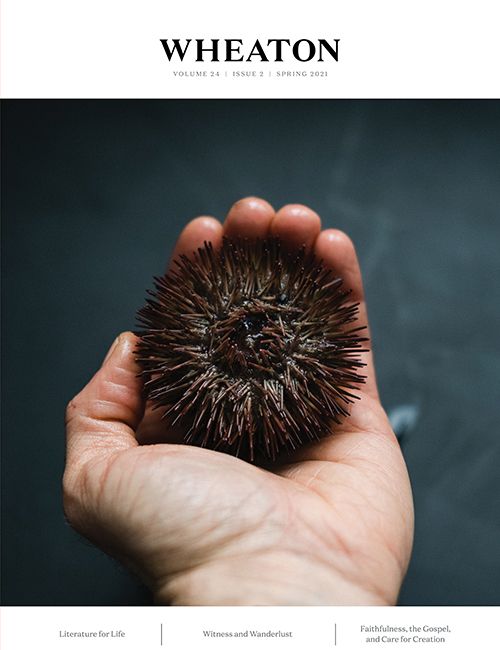Rev. Dr. Amy Peeler
Associate Professor of New Testament
Words: Katherine Braden ’16
Photos: Tony Hughes

What does Scripture say about women? Dr. Amy Peeler, Associate Professor of New Testament, has been asking that question for decades. An ordained minister, she advocates for women in ministry who have been called by the Holy Spirit, yet she knows not everyone feels the same.
For students who believe women shouldn’t be in leadership roles that involve teaching in the church or in teaching Scripture, it can be difficult to take a New Testament class with a female professor, much less one who is ordained.
“I seek to create a space for students to articulate why they hold the position they do,” said Peeler. “If we don’t agree, I still deeply respect them as believers, and we remain united by Christ and his leadership.”
It’s an important conversation both in and out of the classroom for Peeler.
“Though Wheaton is not the church, it is a faith-based institution, and we do church-like things together,” she said. “Women and men are supposed to be equal at work, yet where is a woman’s place in preaching in chapel or serving the Eucharist? We’re not seeking to change anyone’s convictions, but we want to spark an honest conversation among students and faculty.”
While Peeler is a staunch proponent of equal opportunities for women, she is also adamant about retaining traditional biblical language. That means asking hard questions like, “What do we do with the fact that God is referred to as the Father and that Jesus is male?”
It wasn’t until recently, while writing her forthcoming book on Mary’s role in Scripture, Mother of God, that she realized that the truth that God became human through a woman should shape everything we believe.
“In Jesus’ day, women were second-class citizens. The fact that God entered the world through a woman, was parented by a woman, and appears to women first after the Resurrection demonstrates that he values women alongside men,” said Peeler. “But we must remember he remains sovereign, and neither gender is lord over the other. Instead, both should remain in a posture of submission before the cross. That may be the best way for us to demonstrate equality together.”




